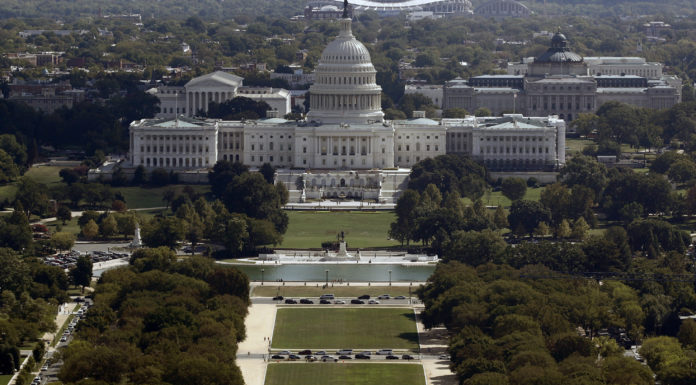(Associated Press) The federal deficit for the 2019 budget year surged 26% from 2018 to $984.4 billion — its highest point in seven years. The gap is widely expected to top $1 trillion in the current budget year and likely remain there for the next decade.
The year-over-year widening in the deficit reflected such factors as revenue lost from the 2017 Trump tax cut and a budget deal that added billions in spending for military and domestic programs.
Forecasts by the Trump administration and the Congressional Budget Office project that the deficit will top $1 trillion in the 2020 budget year, which began Oct. 1. And the CBO estimates that the deficit will stay above $1 trillion over the next decade.
Those projections stand in contrast to President Donald Trump’s campaign promises that even with revenue lost initially from his tax cuts, he could eliminate the budget deficit with cuts in spending and increased growth generated by the tax cuts.
The deficit has been rising every year for the past four years.
For 2019, revenues grew 4%. But spending jumped at twice that rate, reflecting a deal that Trump reached with Congress in early 2018 to boost spending.
Fiscal hawks have long warned of the economic dangers of running big government deficits. Yet the apocalypse they fear never seems to happen, and the government just keeps on spending.
As far as most of us can tell, the huge deficits don’t seem to threaten the economy or elevate the interest rates we pay on credit cards, mortgages and car loans. And in fact, the huge deficits are coinciding with a period of ultra-low rates rather than the surging borrowing costs that economists had warned would likely occur if government deficits got this high.
There is even a new school of economic theory known as the “modern monetary theory.” It argues that such major economies as the United States and Japan don’t need to worry about running deficits because their central banks can print as much money as they need.
Yet this remains a distinctly minority view among economists. Most still believe that while the huge deficits are not an immediate threat, at some point they will become a big problem. They will crowd out borrowing by consumers and businesses and elevate interest rates to levels that ignite a recession.
What’s more, the interest payments on the deficits become part of a mounting government debt that must be repaid and could depress economic growth in coming years.



